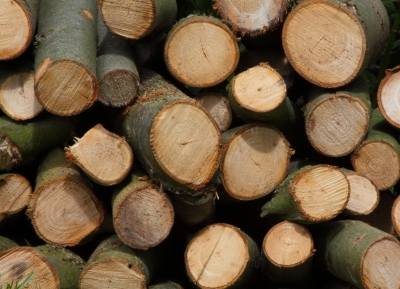
Hundreds of environmental protection officers are being deployed in the Brazilian Amazon after government satellites detected a sudden, unexpected surge in deforestation.
On Wednesday, Brazil’s environment minister Izabella Teixeira announced the creation of a “crisis cabinet” to crackdown on illegal logging in the world’s largest tropical rainfore
st, after satellites registered a 27% hike in Amazon deforestation between August 2010 and April this year compared with the previous year.
“The order is to suffocate environmental crime,” said Teixeira, following the release of images that showed at least 1,848 sq km of rainforest had been destroyed, compared with 1,455 sq km a year earlier.
Satellite data painted an even more disturbing picture of deforestation in March and April this year when nearly 593 sq km of forest were lost – an increase of over 470% compared with the same period in 2010.
Officials said the most dramatic situation was in the soy-growing state of Mato Grosso, where farmers are said to be using tractors and giant chains to rip up vast tracts of native forest.
Brazil’s environmental protection agency, Ibama, this week vowed to launch 200 operations in the region by the end of the year, with support from armed federal police operatives. Illegal cattle and timber would be seized, it said.
This week’s announcement comes after successive years in which Amazon deforestation fell dramatically. Last December Teixeira publicly celebrated reaching “the lowest level of deforestation in the history of Amazonia”.
On Wednesday, however, Teixeira admitted the sudden reversal was “scary” and “atypical”. “Until this deforestation is reduced, none [of our agents] will leave the field,” she said.
Brazil’s environment minister said it was too early to know what had caused the sudden spike in destruction.
But many environmentalists are convinced it is linked to an ongoing and highly controversial debate over changes to Brazil’s forest code that Amazon farmers and ranchers hope will enable them to expand their properties, and boost economic development.
Under the new proposals, the amount of rainforest that Amazon landowners are required to protect, currently set at 80%, could be reduced.
Andre Muggiati, an Amazon-based campaigner for environmental group Greenpeace, said anticipation of such changes had sparked a “deforestation frenzy”. Many ranchers and deforesters were convinced they would be forgiven for newly razed areas, he said.
“They are opening large areas right now and it is not even deforestation season because it is raining in the Amazon region,” he said.
“If the bill is approved then we are going to have the largest deforestation [levels] in the Amazon and in Brazil in general in many years this year.”
“It looked like the country was going one way – a good way for forest conservation – meeting targets, carbon emission reduction. We were really doing fine. But we decided to take a U-turn and go the other way. It is really bad what is happening,” Muggiati added. “The country is going backwards in terms of forest conservation, definitely.”
Brazil’s Congress is expected to vote on changes to the forest code by the end of this month.
Article Courtesy of: http://www.guardian.co.uk

